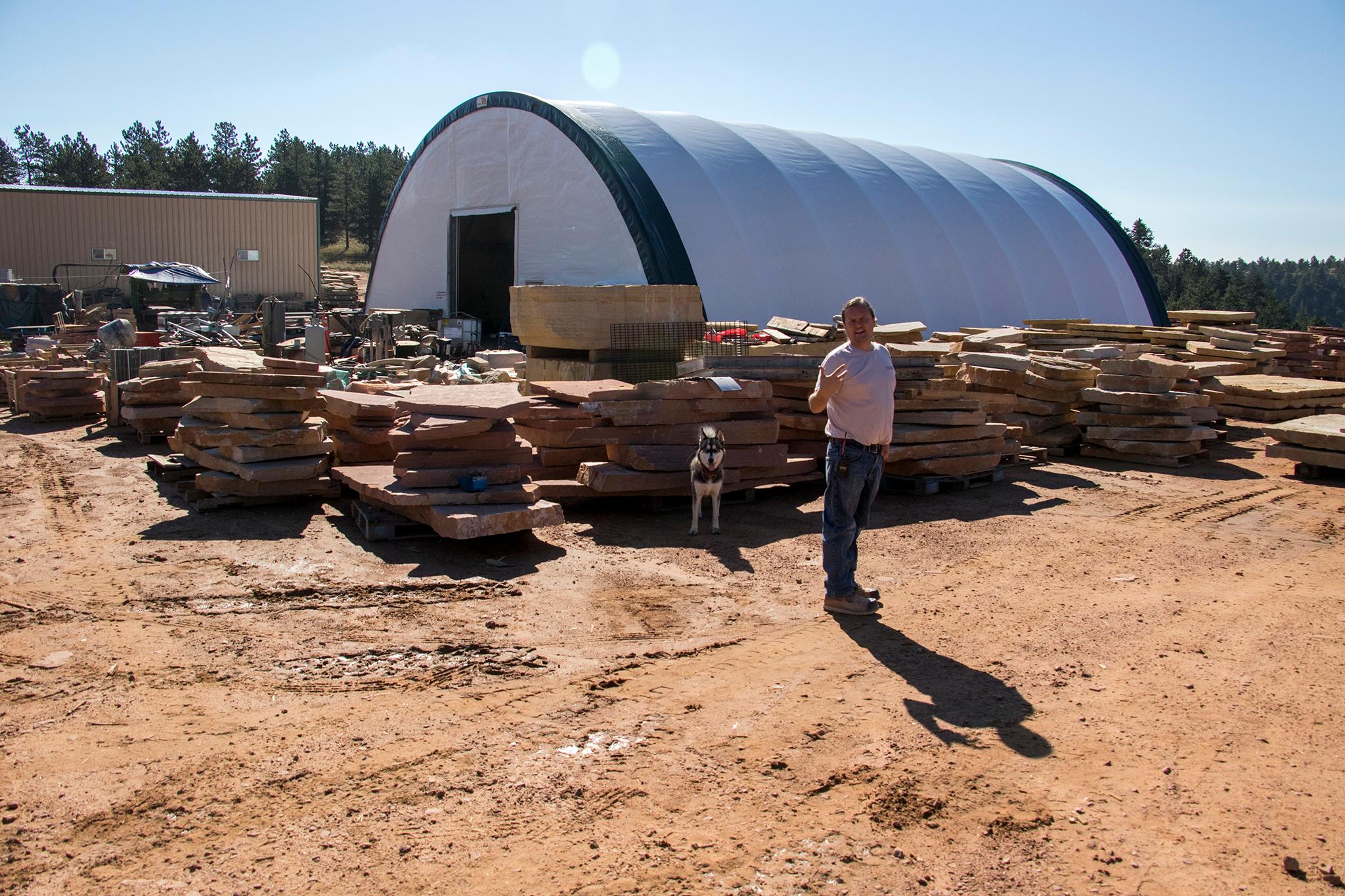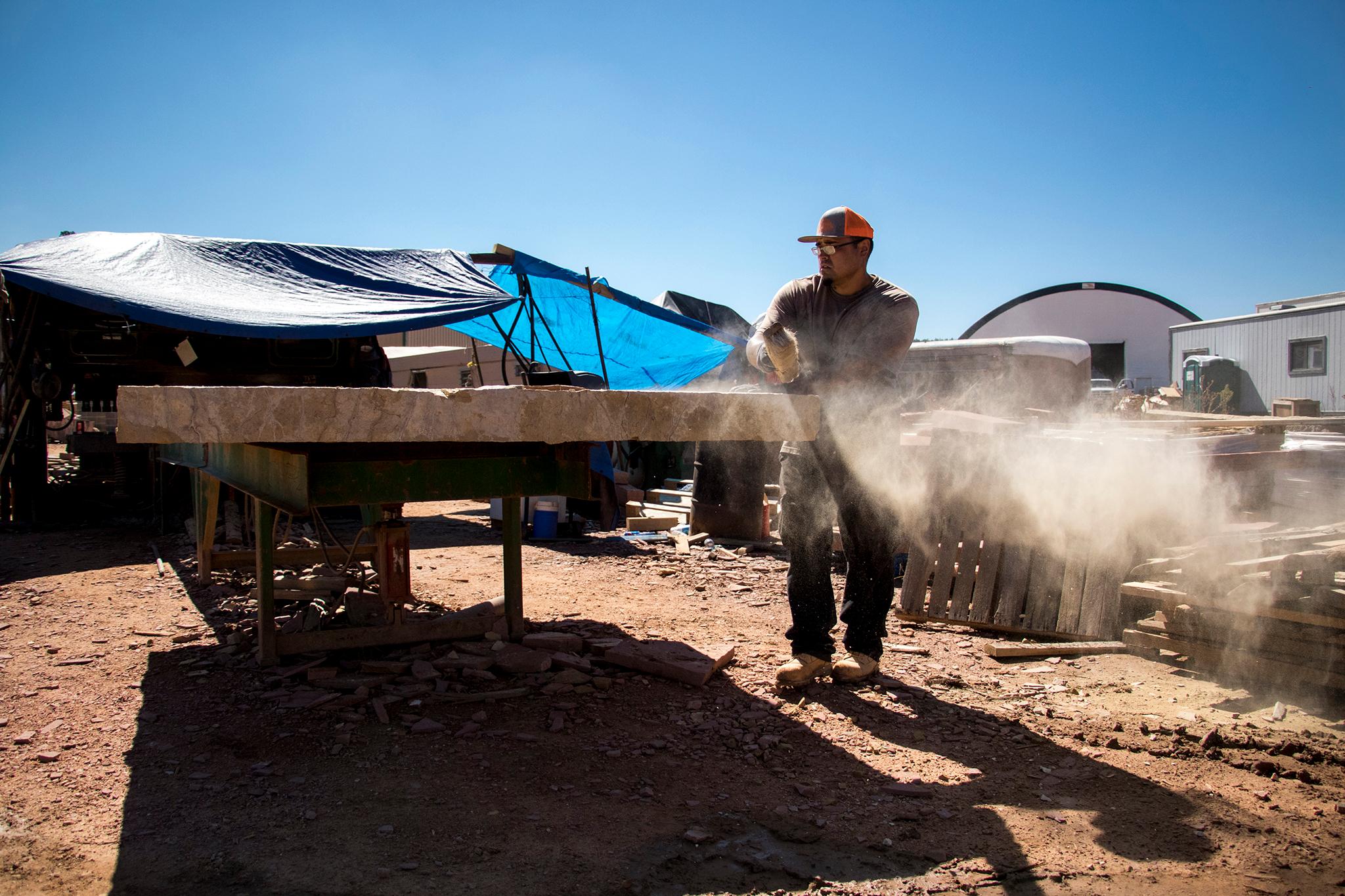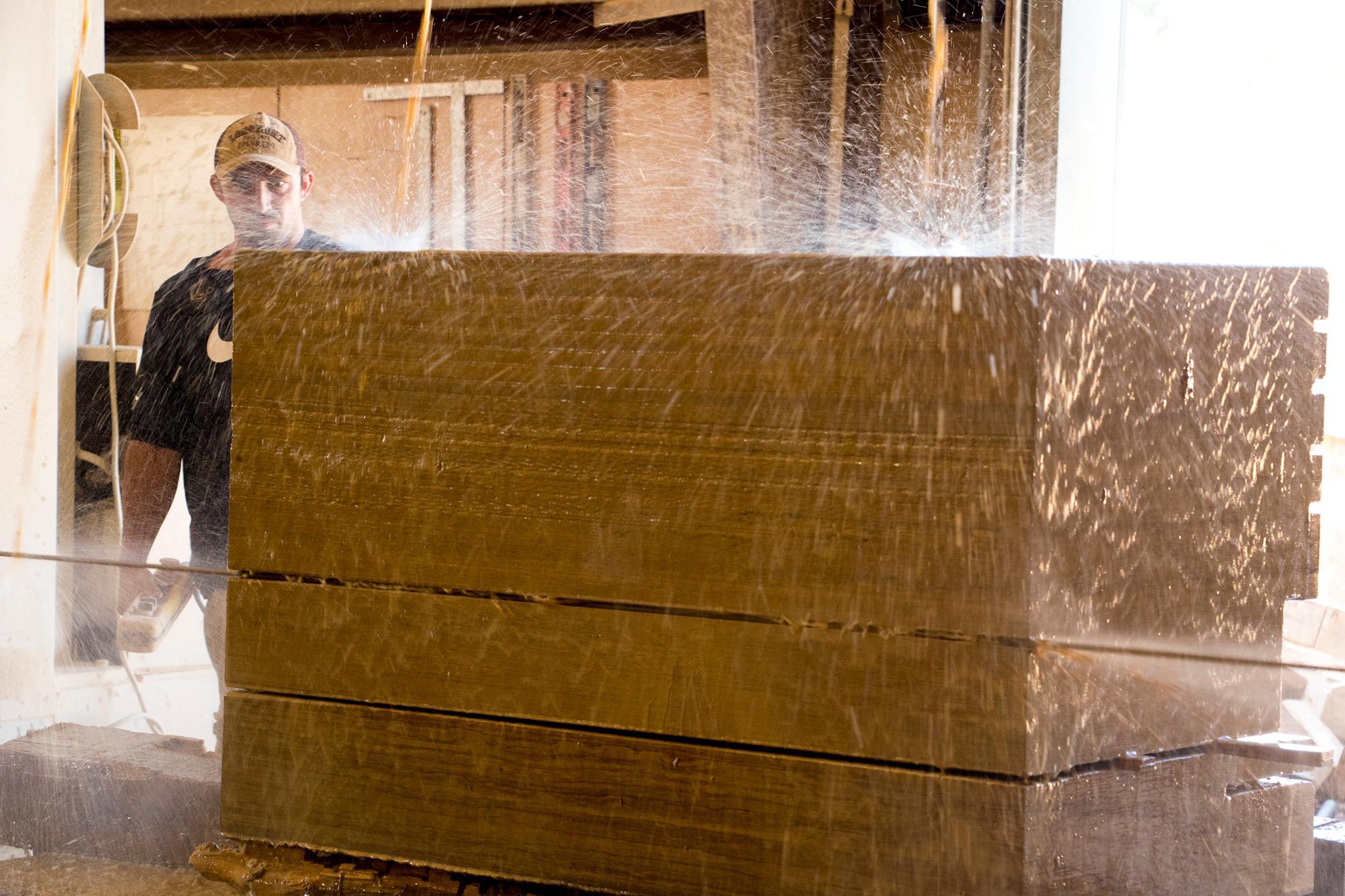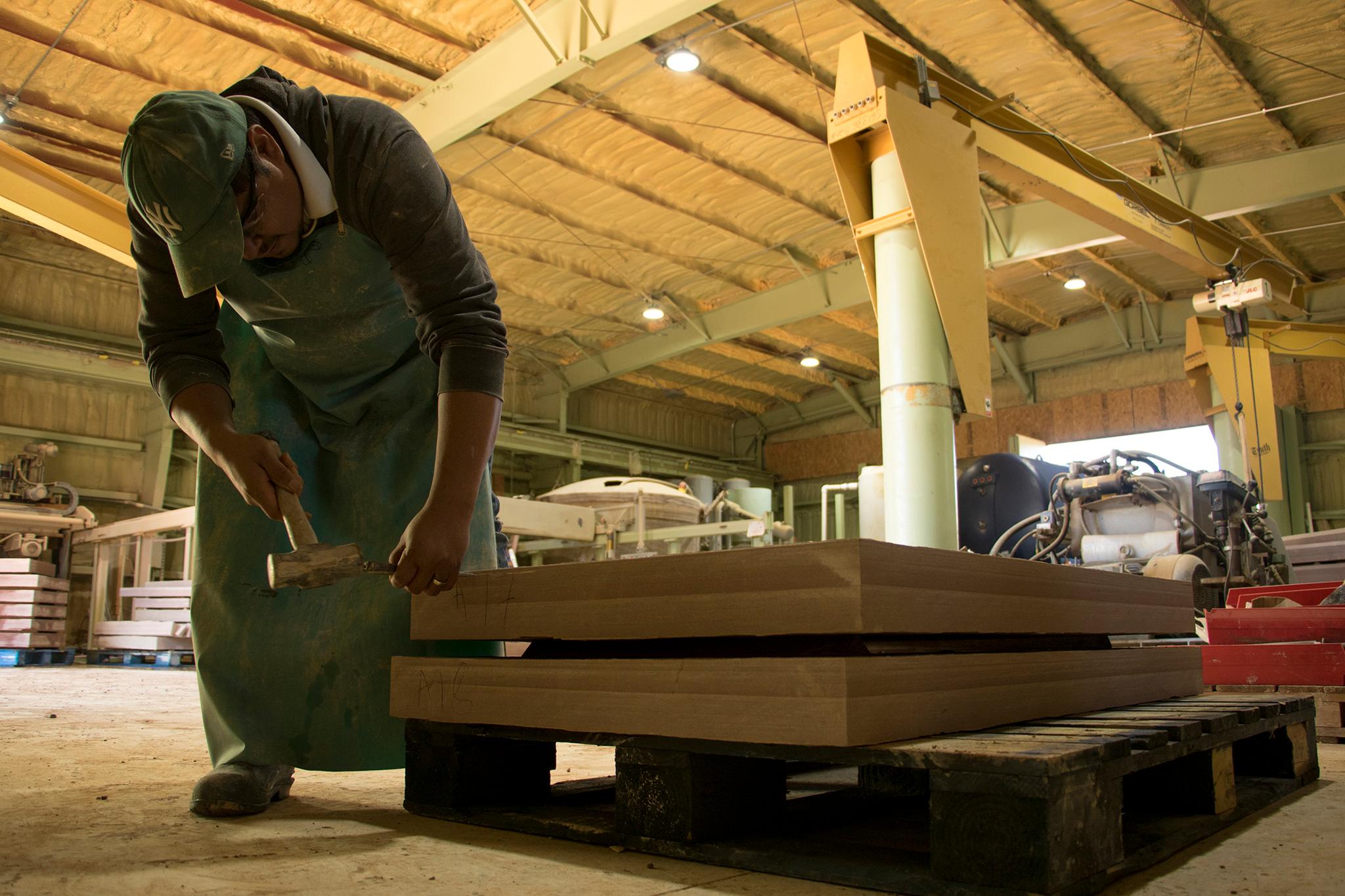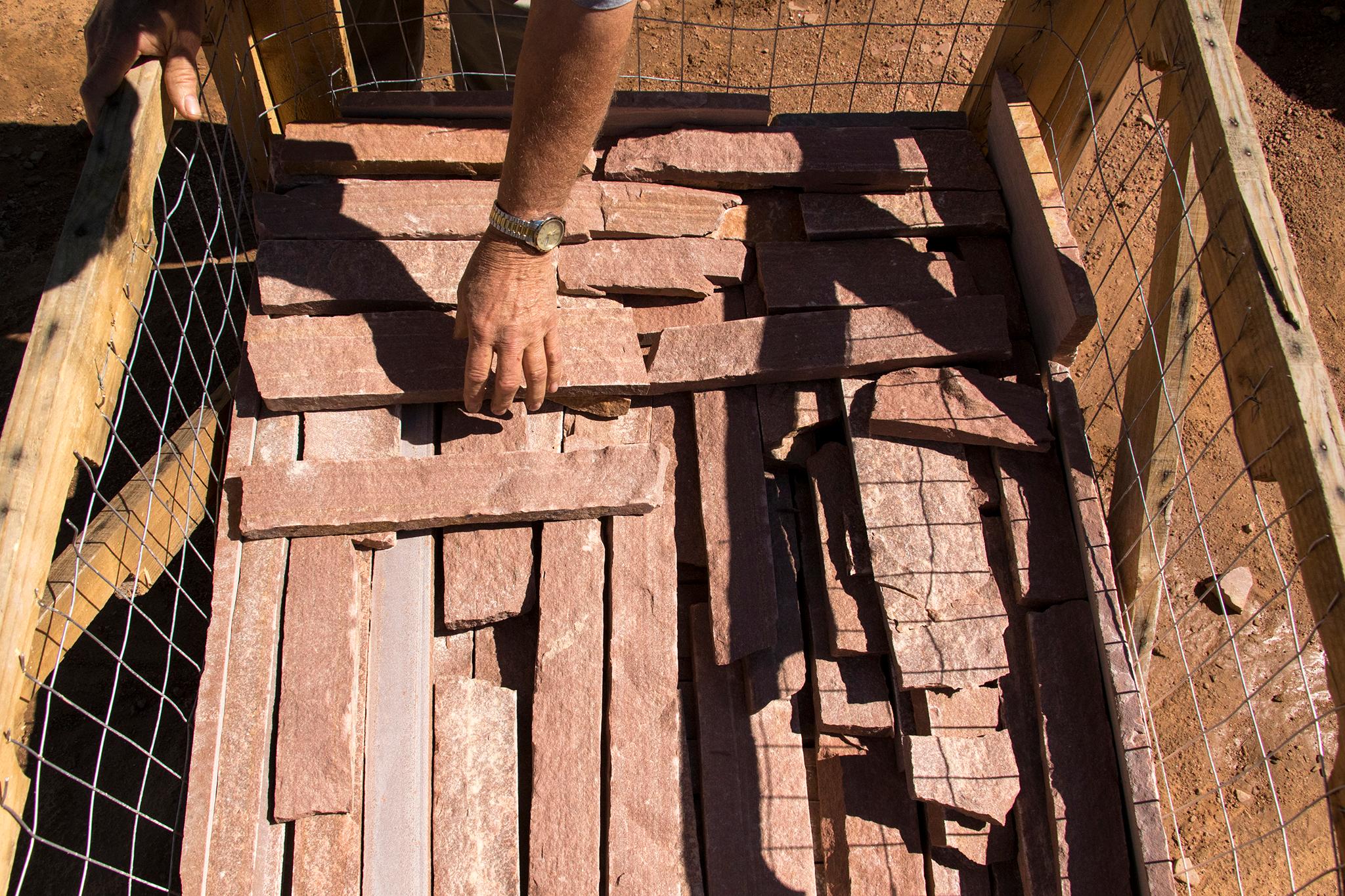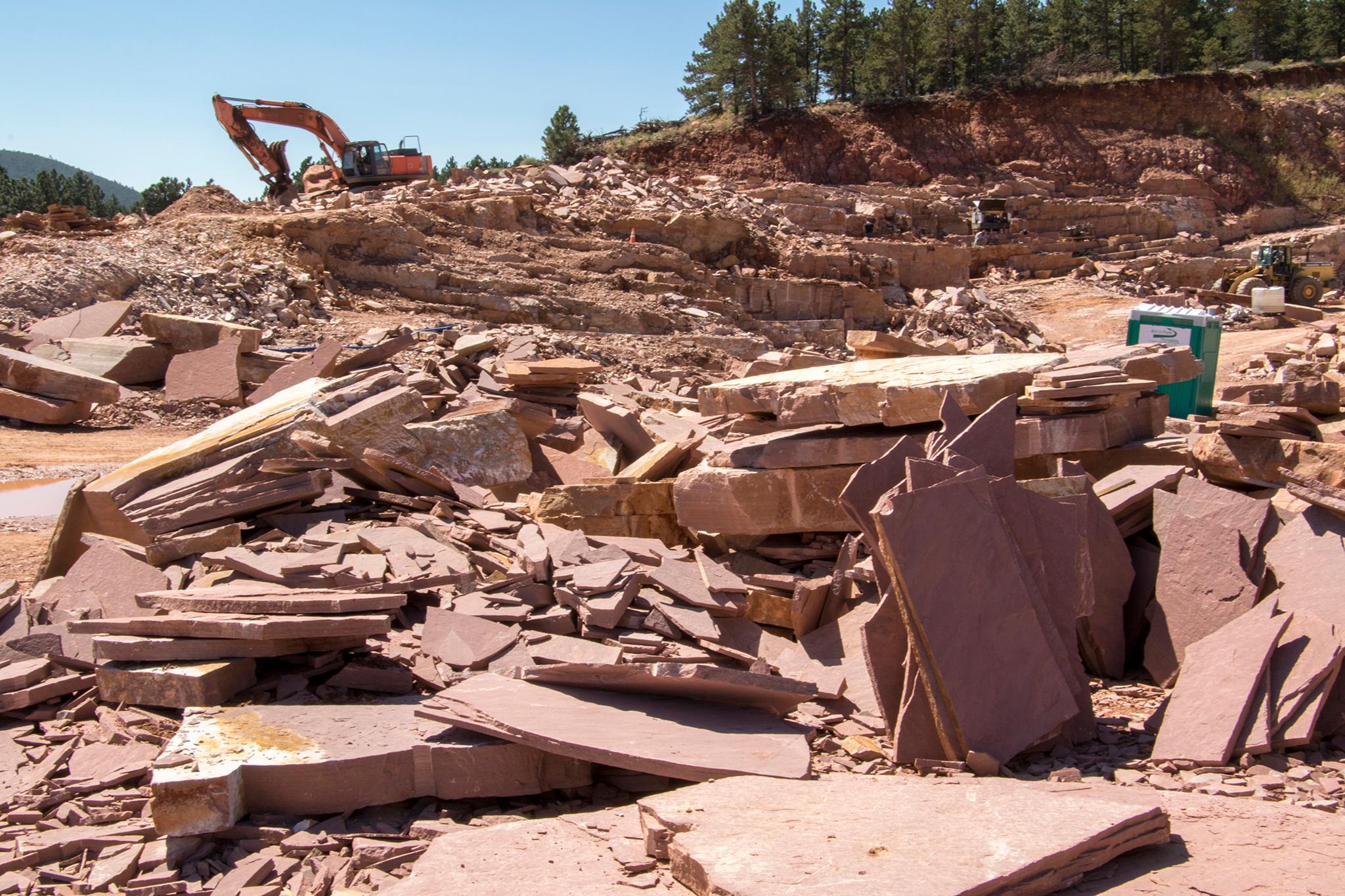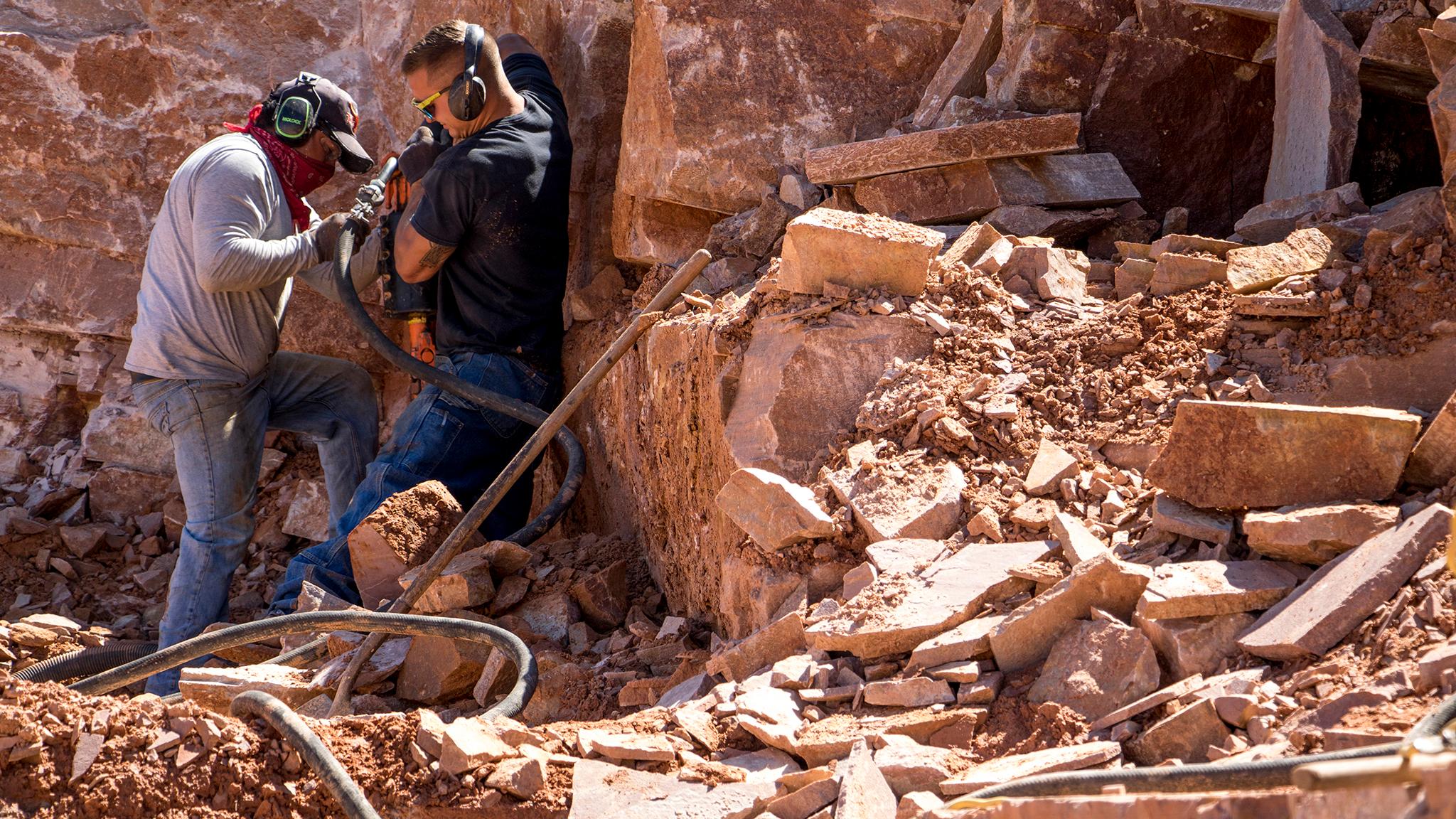Josh Buster should be pretty excited that Denver is working to revamp all of its sidewalks. He's the general manager of Lyons Sandstone, operators of a quarry that's has sourced the city's flagstones since people began installing them a century ago. Denver Public Works' repair and replace program should represent some cash for the family business.
But Buster has a problem: he's had an excruciatingly difficult time finding workers, and the new demand has caused him to lose some sleep.
For years, Lyons Sandstone relied on the federal H-2B visa program to hire seasonal Mexican workers who traveled to swing hammers in his quarry. The Department of Labor officially only provides 66,000 of those visas a year (split in half between the summer and winter), but that number has often not been enough to satisfy employers, many of whom work in landscaping and hospitality. To keep those jobs filled, Congress passed a measure that allowed returning workers to be exempt from the cap. That legislation expired in 2016 and representatives have been unable to renew it.
As a result, a lot of businesses like Buster's have had to scale their work back, and it's not just historic sidewalk-lovers who are feeling the effects.
To the best of his knowledge, the quarry Buster's family runs today opened in the late 1800s.
His grandparents bought the land in the '50s, and about 20 years later his aunt and uncle, Brenda and Bernard Buster started running the stone business.
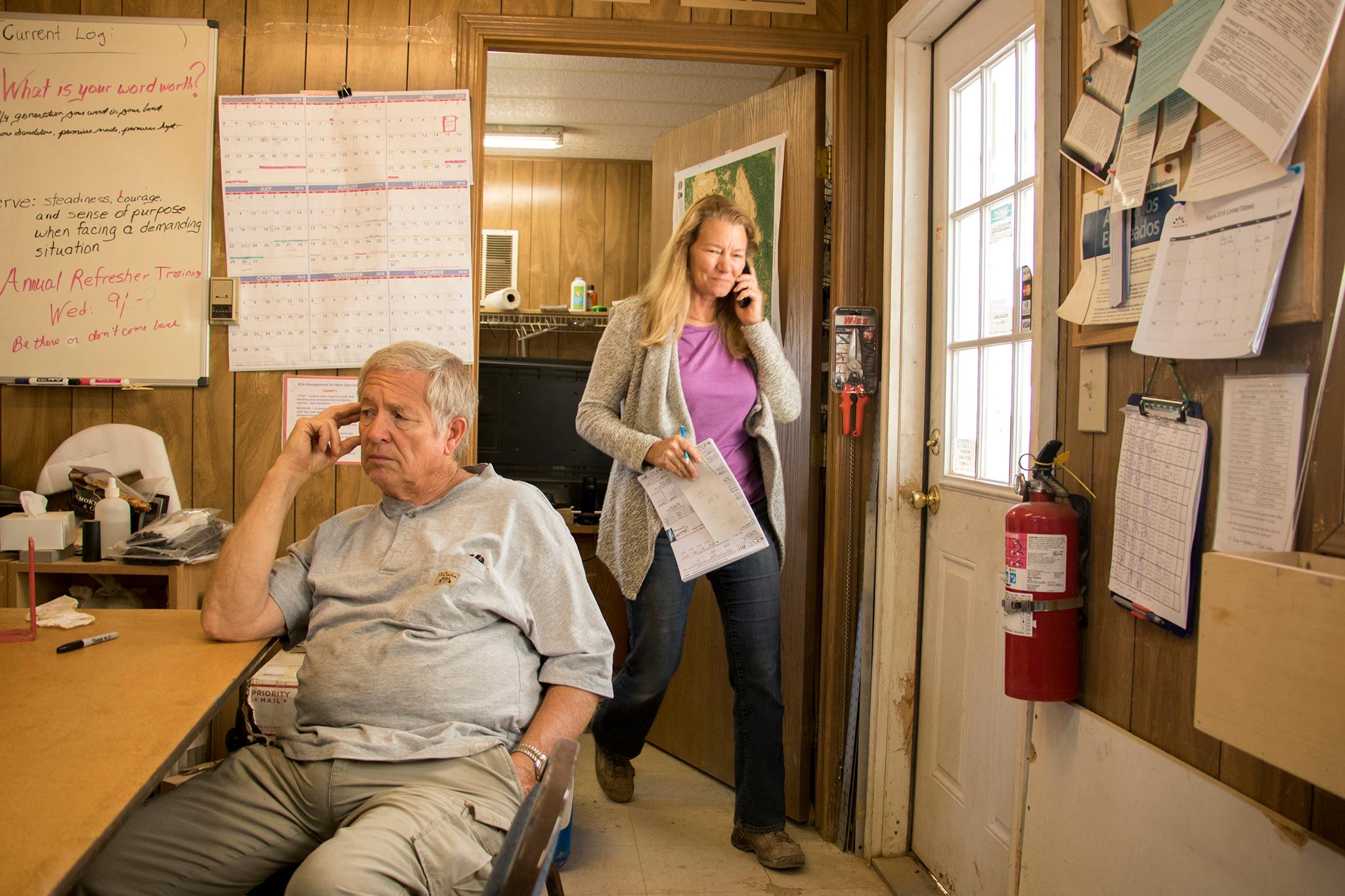
Bernard said demand for sandstone was huge in the early 1900s, then petered out when concrete was invented in the '20s. Lately, though, that demand has returned. (Flagstone, by the way, is not the rock itself. It's the specific size and shape of the slabs we use for sidewalks.)
His quarry supplies jobs all over the country. Locally, they've provided materials on University of Denver and Colorado's campuses and Red Rocks Amphitheater. Massive flooding in 2013 made for a huge spike in business as Front Range residents worked to rebuild.
Lyons Sandstone was always able to meet its orders, and they did so largely with the help of migrant laborers.
"This has never been an industry that has relied on second, third, fourth, tenth-generation Americans," Josh said.
Back when Denverites were first making orders for sandstone, it was European migrants who were carving out the mountain. Today, it's mostly Mexican labor.
For years, the Busters' business expected to get 35 visas, and most were granted to repeat workers.
"We were bringing in people that have come up here year after year," Josh said, "people who have more years with this company than I do."
This year, the Department of Labor granted them nothing.
Josh and Bernard have been aggressively recruiting new talent, but the guys they hire just aren't as reliable. They'll give a job to anyone who walks in the door. Josh said they hired about 35 people at the beginning of the season, but only 12 or so stuck around. And it's making a mess of their finances. Bernard said their gross sales are projected to be half of what they were last year.
Josh expects they'll be able to meet any order that comes in from Denver's sidewalk project, though he wished the city might have given them some warning so they could have stocked up on supplies.
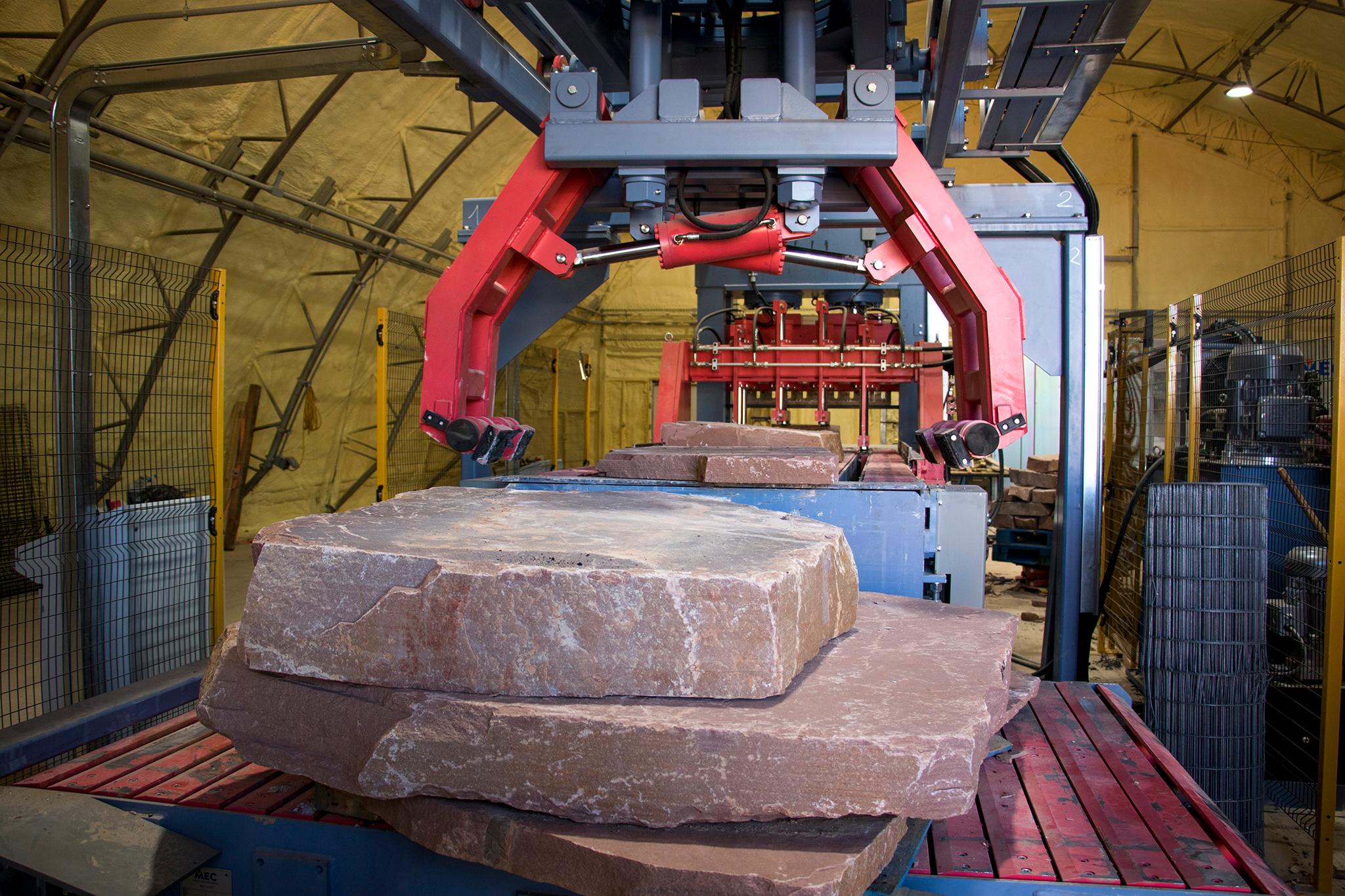
Daniel Kowalski, an immigration attorney based out of Centennial, said overall demand for migrant labor has been steadily rising over the last decade.
Usually, employers get their paperwork in as early as possible to get to the front of the line and make sure they've got the extra help they need. But since returning workers are no longer exempt from the cap, U.S. Citizenship and Immigration Services decided, for the first time, to pick employers out of a lottery. And because employers get all of the visas they ask for or none, a lot of businesses ended up in a tight spot.
"Even if you did everything perfectly," he said, "if you didn’t get picked in the lottery, you got zero workers."
Congress has been unable to fix the situation, he said, because the seasonal labor issue is getting lumped in with other immigration debates. Those issues have been so contentious that neither the House nor Senate has been able to pass anything related to it.
"This is a workforce issue and they keep coupling it with immigration," said John McMahon, executive director of the Associated Landscape Contractors of Colorado. "There are those that are misinformed who feel H-2B is taking away American jobs."
Landscapers, like quarriers, have relied heavily on seasonal labor mostly from Mexican workers. Employers hiring for these taxing, physical positions just can't get anyone else to do it.
"We’d hire Americans if we could," Kowalski said. "Nobody wants to push a lawnmower."
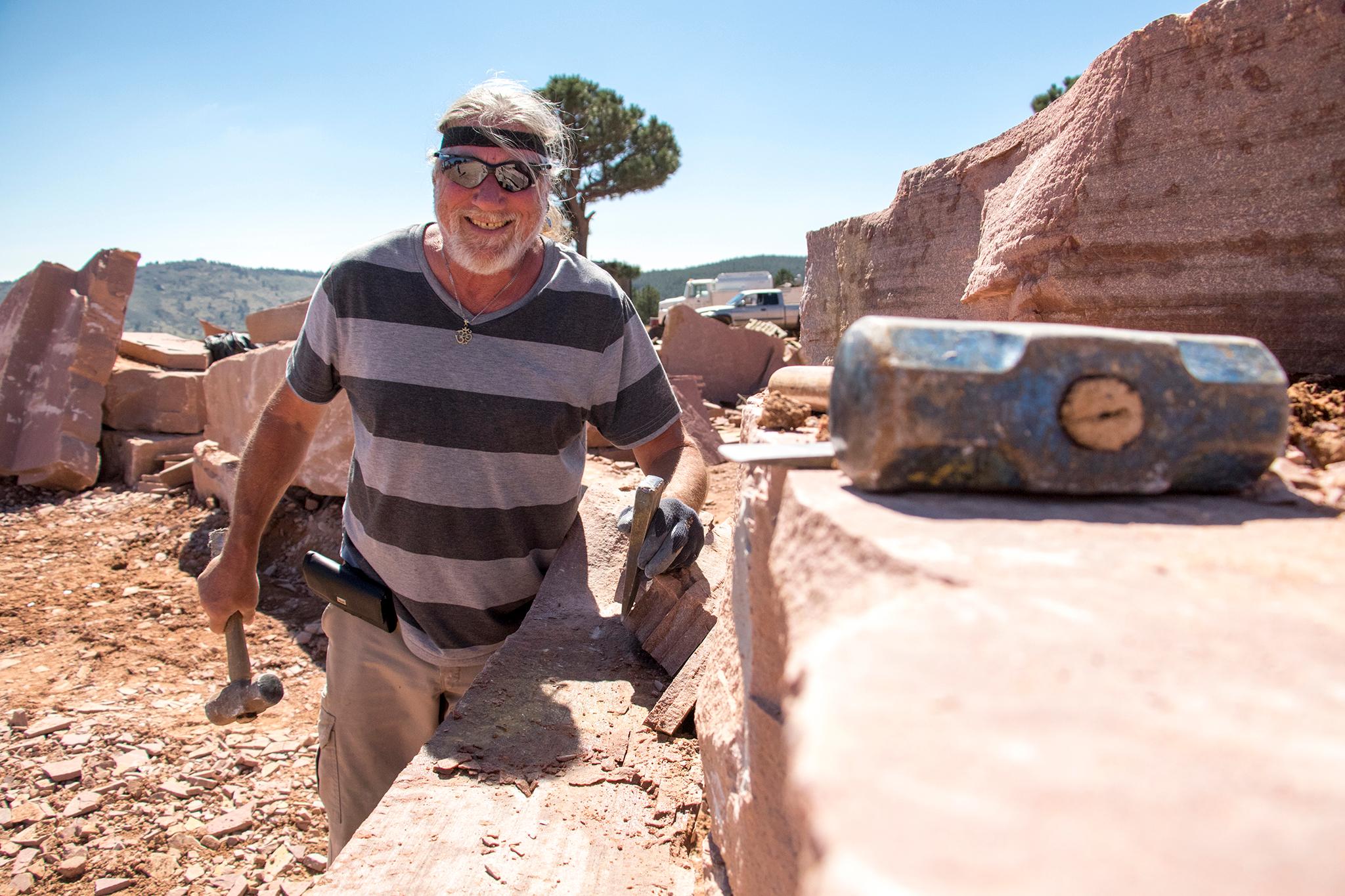
This raises a kind of political paradox, he said. Immigration issues tend to come down along party lines, but most of his clients are Republicans.
"It's really sad, odd," he said, "to see these conservative business owners fighting with their conservative senators."
Lawmakers did add an additional 15,000 visas last year to try to fix things, but that addition paled in comparison to the some 80,000 positions requesting status for this summer alone.
The visa shortage is a particular problem for Denver and Colorado. Here, since unemployment is low, all kinds of skilled trades are facing worker shortages.
McMahon said Colorado is has more H-2B visas per capita than any other state. That's not all manual labor. Big ski resorts bring in a ton of workers from all over the world for their seasonal needs.
"With Denver’s continual growth and development, this problem is going to get exponentially worse in 2019," he added.
Groups like his landscaping association have been lobbying lawmakers to figure something out. Kowalski said a renewal might make it into a federal budget proposal this fall.
But Jeff Joseph, another immigration attorney based in Denver, said the entire system has flaws that need fixing. While agricultural laborers (who get a separate H-1A visa) and landscapers fall under seasonal designation, most professions that need workers have no pathway to hire immigrants. The meatpacking industry, for instance, has a hard time hiring American citizens but also can't legally fill the gaps with migrant workers. As a result, he said, employers are more likely to hire someone who is undocumented.
Joseph sees all of these problems as part of a bigger policy mess.
"In my opinion, all of it needs to be wrapped up in a comprehensive immigration reform."
Back at the quarry, Josh Buster laid out why this is a bigger problem. They're nowhere close to the 60-person team they had last year, and they've cut back on all kinds of expenses as a result.
"It’s not just Lyons Sandstone, it’s not just the grocery stores," he said. "There’s a little machine shop down in Georgia that didn’t get a $5,000 order this year."
Correction: This story originally stated that the U.S. Department of Labor initiated the H-2B lottery, but it was actually U.S. Citizenship and Immigration Services.
